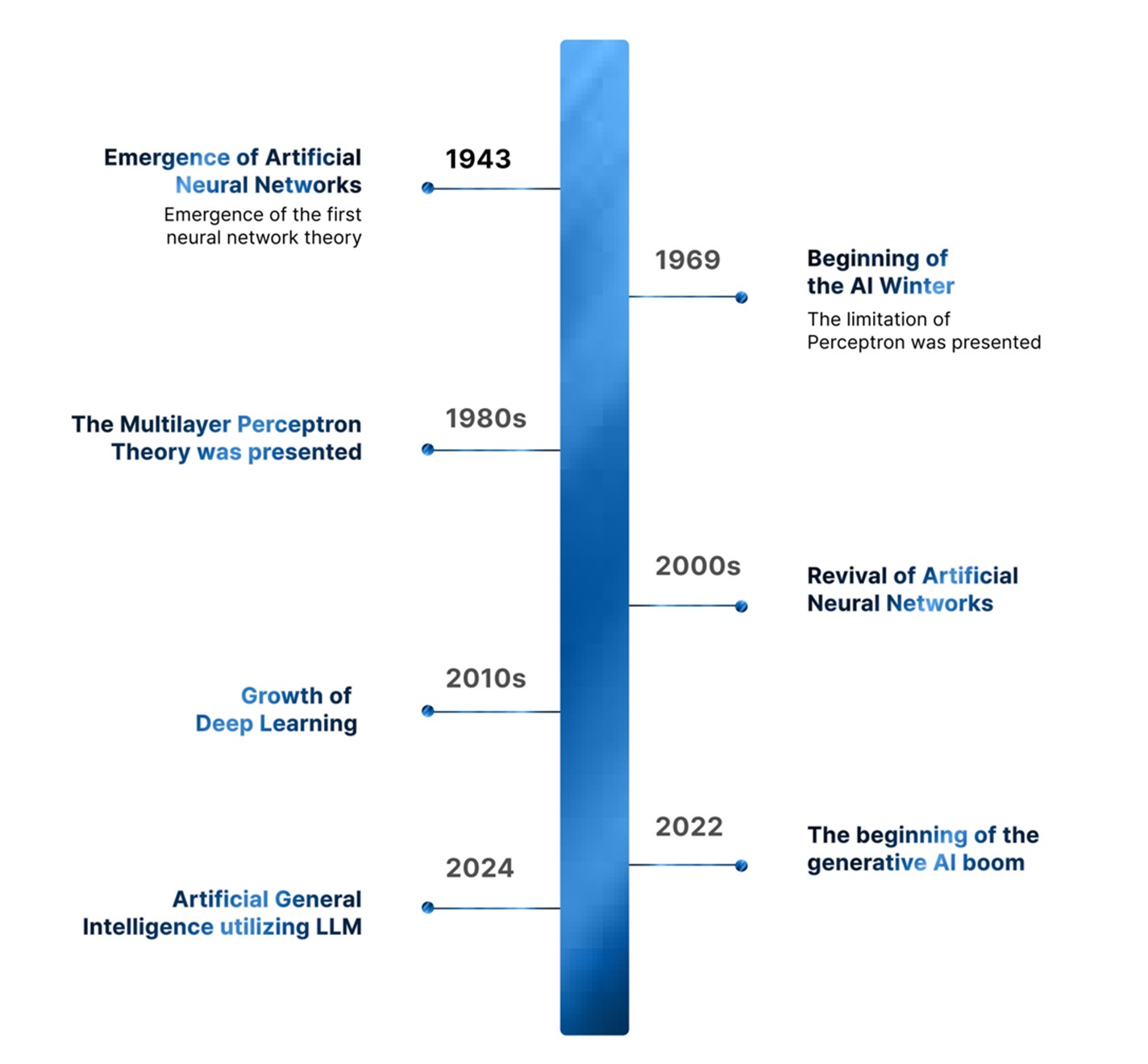AI and Your Portfolio: How LLMs Can Boost Your Investments
Large language models (LLMs), such as OpenAI's GPT-4, can sift through massive datasets, identify patterns and generate insights about investment decisions.


Profit and prosper with the best of Kiplinger's advice on investing, taxes, retirement, personal finance and much more. Delivered daily. Enter your email in the box and click Sign Me Up.
You are now subscribed
Your newsletter sign-up was successful
Want to add more newsletters?

Delivered daily
Kiplinger Today
Profit and prosper with the best of Kiplinger's advice on investing, taxes, retirement, personal finance and much more delivered daily. Smart money moves start here.

Sent five days a week
Kiplinger A Step Ahead
Get practical help to make better financial decisions in your everyday life, from spending to savings on top deals.

Delivered daily
Kiplinger Closing Bell
Get today's biggest financial and investing headlines delivered to your inbox every day the U.S. stock market is open.

Sent twice a week
Kiplinger Adviser Intel
Financial pros across the country share best practices and fresh tactics to preserve and grow your wealth.

Delivered weekly
Kiplinger Tax Tips
Trim your federal and state tax bills with practical tax-planning and tax-cutting strategies.

Sent twice a week
Kiplinger Retirement Tips
Your twice-a-week guide to planning and enjoying a financially secure and richly rewarding retirement

Sent bimonthly.
Kiplinger Adviser Angle
Insights for advisers, wealth managers and other financial professionals.

Sent twice a week
Kiplinger Investing Weekly
Your twice-a-week roundup of promising stocks, funds, companies and industries you should consider, ones you should avoid, and why.

Sent weekly for six weeks
Kiplinger Invest for Retirement
Your step-by-step six-part series on how to invest for retirement, from devising a successful strategy to exactly which investments to choose.
In recent years, the financial landscape has witnessed a technological revolution with the rise of artificial intelligence (AI), particularly large language models (LLMs). These advanced AI tools are changing the way investment strategies are developed and implemented, offering unprecedented opportunities for investors. Understanding how LLMs can be utilized in investment portfolios can help investors make more informed decisions and potentially enhance their financial outcomes.
Embracing LLM technology has the potential to significantly impact an investor's approach to portfolio management. LLMs can enable investors to uncover insights that might otherwise go unnoticed or help them find information faster. This can lead to more informed investment decisions, helping investors find new investment opportunities in a shorter timeframe. While tactical asset allocation might require advisory assistance, integrating LLMs into investment processes could provide investors with immediate access to valuable research.

The advancement of AI technologies is leading to the development of large language models (LLMs).
From just $107.88 $24.99 for Kiplinger Personal Finance
Become a smarter, better informed investor. Subscribe from just $107.88 $24.99, plus get up to 4 Special Issues

Sign up for Kiplinger’s Free Newsletters
Profit and prosper with the best of expert advice on investing, taxes, retirement, personal finance and more - straight to your e-mail.
Profit and prosper with the best of expert advice - straight to your e-mail.
LLMs, like OpenAI's GPT-4, are able to process and analyze complex information quickly, making them valuable tools in various industries, including finance. For investors, LLMs provide a means to sift through massive datasets, identify patterns, and generate insights that were previously difficult to obtain.
One of the key advantages of LLMs is their ability to analyze complex financial data efficiently. They can identify trends and predict market movements with a level of accuracy and speed that surpasses traditional methods or human capabilities. This capability can allow investors to build more robust investment strategies, balancing risk and return effectively.
LLMs can personalize investment strategies to fit individual investor needs. By analyzing an investor’s financial goals and risk tolerance, coupled with the current market conditions, LLMs can help investors create tailored portfolios that align with their objectives. This personalized approach ensures that each investment plan is unique to the investor's specific circumstances, potentially leading to improved outcomes.
Who’s using LLMs
Investors can leverage LLMs in various ways to enhance their portfolios. Some of the largest global leaders in the financial industry are utilizing these technologies, including:
- Morgan Stanley. The investment bank has launched a generative AI assistant that helps financial advisers quickly extract relevant information from a vast database of financial data. This tool significantly speeds up the process of analyzing financial information and providing advice to clients.
- Robinhood. The popular trading app has integrated AI-powered features, including natural language processing, to provide personalized insights and recommendations to its users.
- Qraft Technologies. This fintech firm leverages AI for both predictive analytics and the development of LLM technologies. The firm has developed LLM technologies to summarize and translate corporate disclosures from different languages into the local language. The firm has also developed an LLM platform to assist an asset manager’s review of materials for compliance. It also built a fund chatbot that provides internal fund data to clients and makes it available for individual investors through the client's application. (Note: I am the APAC CEO at Qraft Technologies.)
Investors can use these technologies for in-depth market research and analysis, providing insights that inform better decision-making. LLMs can help optimize portfolios by suggesting asset allocations that maximize returns while minimizing risks.
Moreover, LLMs assist in risk management by identifying potential threats and helping investors develop strategies to mitigate them. This can help investors take a more proactive approach, potentially protecting investments against unforeseen market fluctuations.
The use of LLMs translates into several practical benefits. An enhanced understanding is one such benefit. Investors can use LLMs to explain complex investment strategies in simpler terms, ensuring they fully understand the rationale behind their financial decisions.
Potential challenges and considerations
While LLMs offer many benefits, it is important to recognize their limitations. They are powerful tools, but not infallible. Investors must combine AI insights with their knowledge and judgment to make sound investment decisions. Ethical considerations around data privacy and responsible AI use should also be addressed.
The integration of LLMs in investment portfolios represents a significant advancement in personal finance. By enhancing data analysis, market predictions and personalized investment strategies, LLMs offer valuable benefits to investors.
As the role of AI continues to evolve, it could prove beneficial for investors to seek out how these technologies can be harnessed to achieve their financial needs and goals. Staying informed about these advancements can give investors a competitive edge, enabling them to navigate the complexities of the financial markets with confidence and foresight, while paving the way for more informed, effective and personalized strategies.
Related Content
- How AI Can Help Take the Emotion Out of Investor Decisions
- AI Has Powerful Potential to Make Investing Decisions Easier
- Beyond the Hype: A Guide to Investing in AI
- Can Stocks Picked by Artificial Intelligence Beat the Market? 3 Stocks to Watch
- Don’t Hand Your Retirement Income Planning Over to AI Just Yet
Profit and prosper with the best of Kiplinger's advice on investing, taxes, retirement, personal finance and much more. Delivered daily. Enter your email in the box and click Sign Me Up.

Francis Geeseok Oh is responsible for global sales and business development of Qraft's cutting-edge artificial intelligence technologies to financial institutions. He contributes to media such as Bloomberg, WSJ and Financial Times, discussing AI adoption in the asset management industry. Also, he has appeared as a guest speaker at AI lecture classes, including Oxford Said Business School, HKU and HKUST.
-
 Ask the Tax Editor: Federal Income Tax Deductions
Ask the Tax Editor: Federal Income Tax DeductionsAsk the Editor In this week's Ask the Editor Q&A, Joy Taylor answers questions on federal income tax deductions
-
 States With No-Fault Car Insurance Laws (and How No-Fault Car Insurance Works)
States With No-Fault Car Insurance Laws (and How No-Fault Car Insurance Works)A breakdown of the confusing rules around no-fault car insurance in every state where it exists.
-
 7 Frugal Habits to Keep Even When You're Rich
7 Frugal Habits to Keep Even When You're RichSome frugal habits are worth it, no matter what tax bracket you're in.
-
 Why Picking a Retirement Age Feels Impossible (and How to Finally Decide)
Why Picking a Retirement Age Feels Impossible (and How to Finally Decide)Struggling with picking a date? Experts explain how to get out of your head and retire on your own terms.
-
 The Best Precious Metals ETFs to Buy in 2026
The Best Precious Metals ETFs to Buy in 2026Precious metals ETFs provide a hedge against monetary debasement and exposure to industrial-related tailwinds from emerging markets.
-
 For the 2% Club, the Guardrails Approach and the 4% Rule Do Not Work: Here's What Works Instead
For the 2% Club, the Guardrails Approach and the 4% Rule Do Not Work: Here's What Works InsteadFor retirees with a pension, traditional withdrawal rules could be too restrictive. You need a tailored income plan that is much more flexible and realistic.
-
 Retiring Next Year? Now Is the Time to Start Designing What Your Retirement Will Look Like
Retiring Next Year? Now Is the Time to Start Designing What Your Retirement Will Look LikeThis is when you should be shifting your focus from growing your portfolio to designing an income and tax strategy that aligns your resources with your purpose.
-
 I'm a Financial Planner: This Layered Approach for Your Retirement Money Can Help Lower Your Stress
I'm a Financial Planner: This Layered Approach for Your Retirement Money Can Help Lower Your StressTo be confident about retirement, consider building a safety net by dividing assets into distinct layers and establishing a regular review process. Here's how.
-
 Stocks Sink With Alphabet, Bitcoin: Stock Market Today
Stocks Sink With Alphabet, Bitcoin: Stock Market TodayA dismal round of jobs data did little to lift sentiment on Thursday.
-
 Your Adult Kids Are Doing Fine. Is It Time To Spend Some of Their Inheritance?
Your Adult Kids Are Doing Fine. Is It Time To Spend Some of Their Inheritance?If your kids are successful, do they need an inheritance? Ask yourself these four questions before passing down another dollar.
-
 The 4 Estate Planning Documents Every High-Net-Worth Family Needs (Not Just a Will)
The 4 Estate Planning Documents Every High-Net-Worth Family Needs (Not Just a Will)The key to successful estate planning for HNW families isn't just drafting these four documents, but ensuring they're current and immediately accessible.